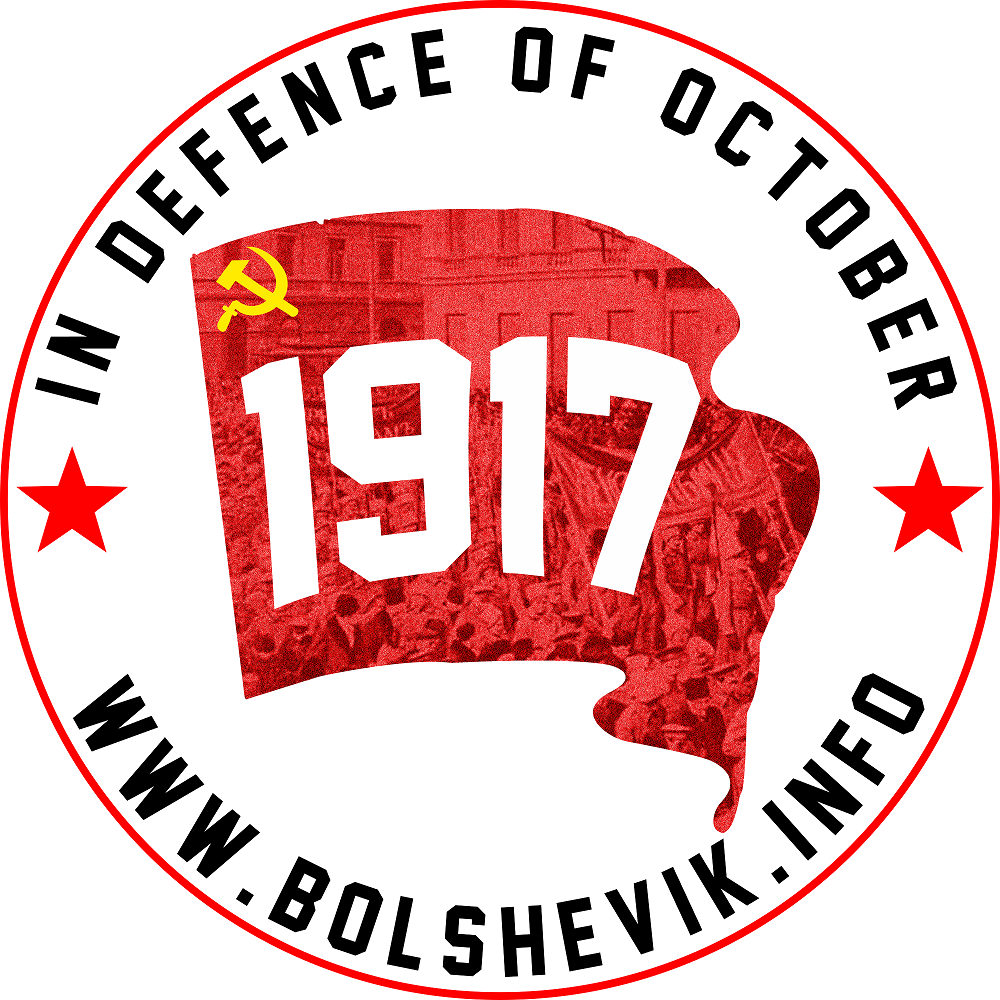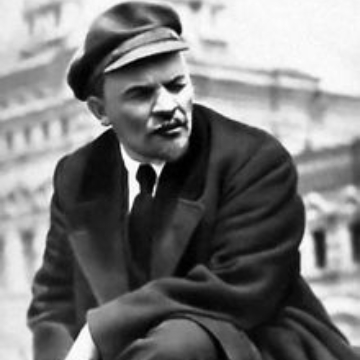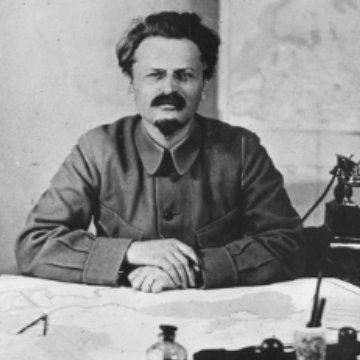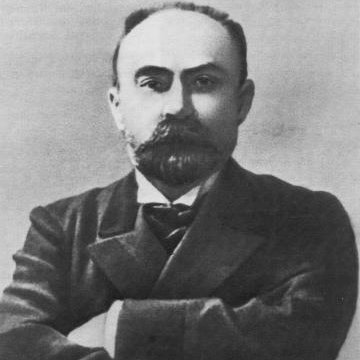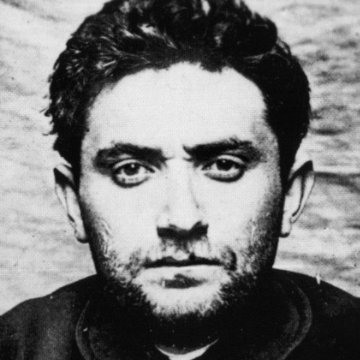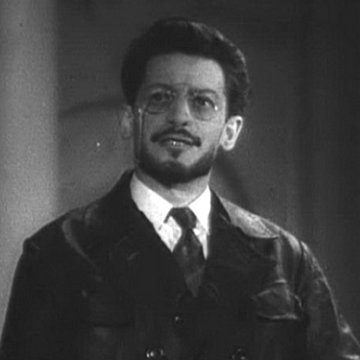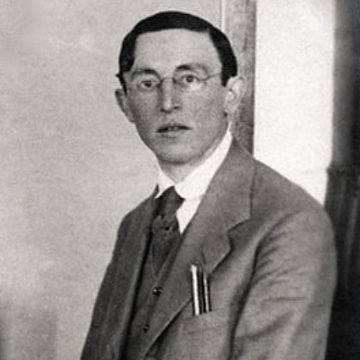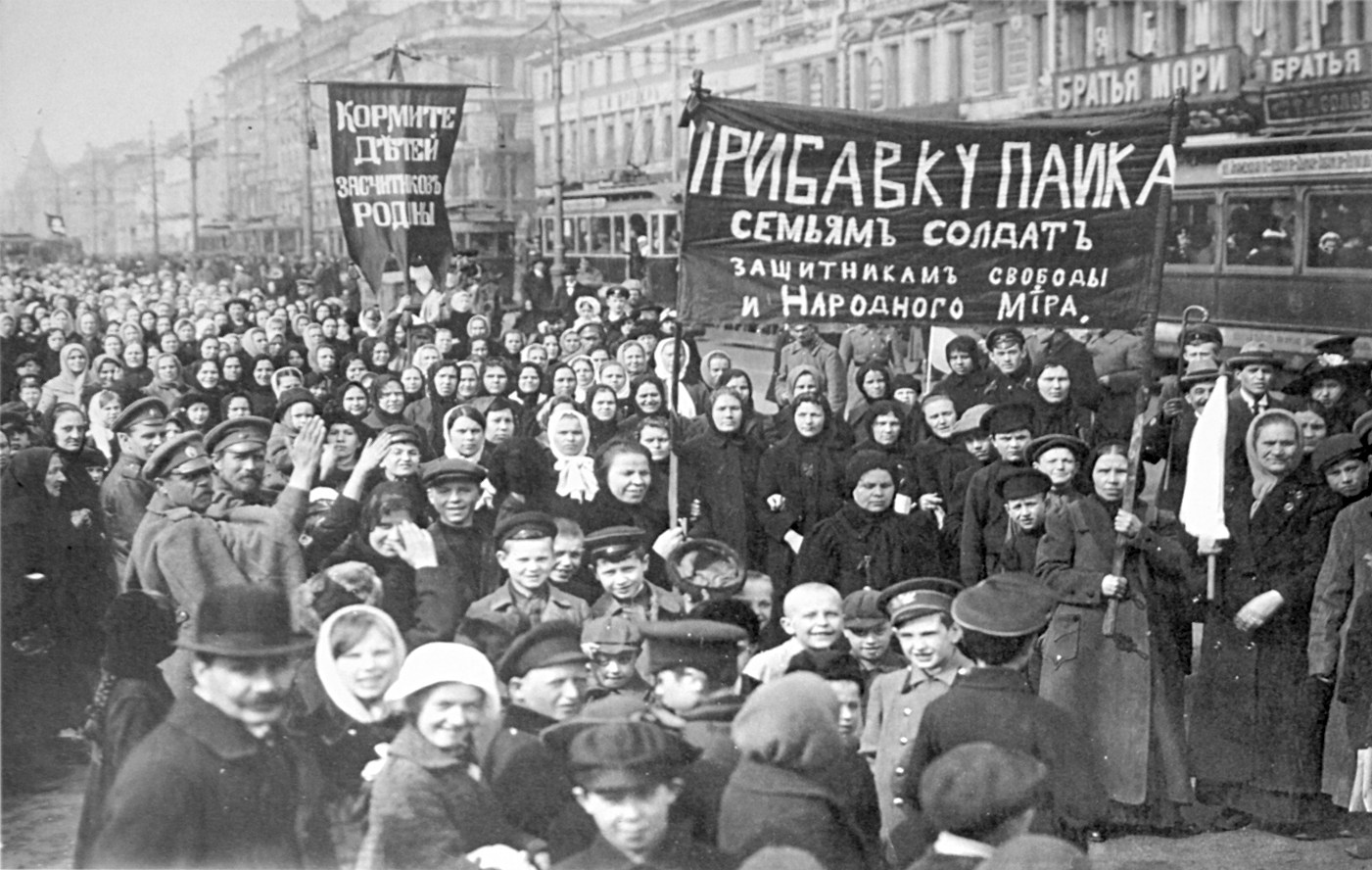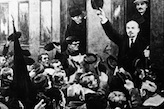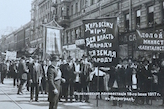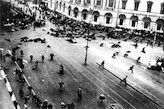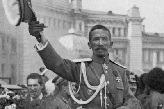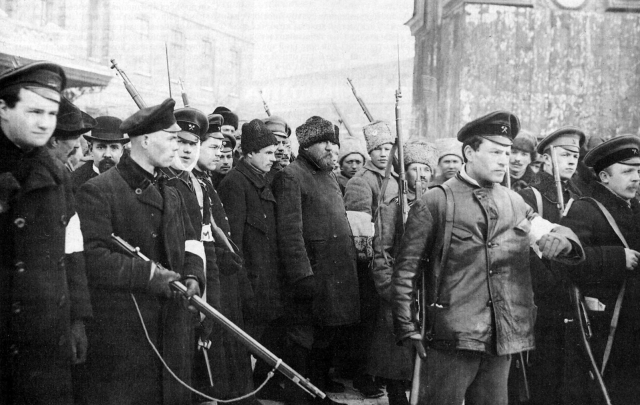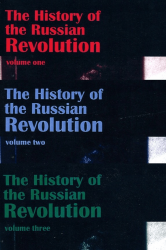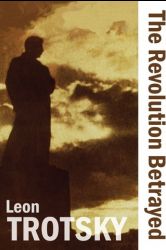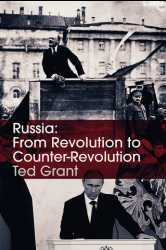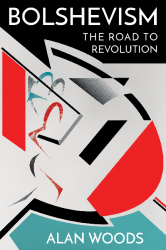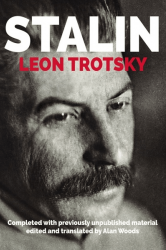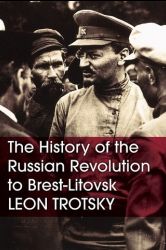"The alliance between the workers and the working and exploited peasants would make it obligatory for the party of the proletariat to vote for the peasants and against the bourgeoisie"
A letter to Pravda
Today, Saturday, November 18, in the course of a speech I made at the Peasants' Congress, I was publicly asked a question to which I forthwith replied. It is essential that this question and my reply should immediately be made known to all the reading public, for while formally speaking only in my own name, I was actually speaking in the name of the whole Bolshevik Party.
The matter was the following.
Touching on the question of an alliance between the Bolshevik workers and the Left Socialist-Revolutionaries, whom many peasants at present trust, I argued in my speech that this alliance can be an "honest coalition", an honest alliance, for there is no radical divergence of interests between the wage-workers and the working and exploited peasants. Socialism is fully able to meet the interests of both. Only socialism can meet their interests. Hence the possibility and necessity for an "honest coalition" between the proletarians and the working and exploited peasantry. On the contrary, a "coalition" (alliance) between the working and exploited classes, on the one hand, and the bourgeoisie, on the other, cannot be an "honest coalition" because of the radical divergence of interests between these classes.
Imagine, I said, that there is a majority of Bolsheviks and a minority of Left Socialist-Revolutionaries in the government, or even, let us assume, only one Left Socialist-Revolutionary--the Commissar of Agriculture. Could the Bolsheviks practise an honest coalition under such circumstances?
They could; for, while they are irreconcilable in their fight against the counter-revolutionary elements (including the Right Socialist-Revolutionary and the defencist elements), the Bolsheviks would be obliged to abstain from voting on questions which concern purely Socialist-Revolutionary points in the land programme approved by the Second All-Russia Congress of Soviets. Such, for instance, would be the point on equal land tenure and the redistribution of land among the small holders.
By abstaining from voting on such a point the Bolsheviks would not be changing their programme in the slightest. For, given the victory of socialism (workers' control over the factories, to be followed by their expropriation, the nationalisation of the banks, and the creation of a Supreme Economic Council for the regulation of the entire economic life of the country)--given that the workers would be obliged to agree to the transitional measures proposed by the small working and exploited peasants, provided such measures were not detrimental to the cause of socialism. Even Kautsky, when he was still a Marxist (1899-l909), frequently admitted--l said --that the measures of transition to socialism cannot be identical in countries with large-scale and those with small-scale farming.
We Bolsheviks would be obliged to abstain from voting when such a point was being decided in the Council of People's Commissars or in the Central Executive Committee, for if the Left Socialist-Revolutionaries (as well as the peasants who support them) agreed to workers' control, to the nationalisation of the banks, etc., equal land tenure would be only one of the measures of transition to full socialism. For the proletariat to impose such transitional measures would be absurd; it is obliged, in the interests of the victory of socialism, to yield to the small working and exploited peasants in the choice of these transitional measures, for they could do no harm to the cause of socialism.
Thereupon, a Left Socialist-Revolutionary (it was Comrade Feofilaktov, if I am not mistaken) asked me the following question:
"How would the Bolsheviks act if in the Constituent Assembly the peasants wanted to pass a law on equal land tenure, while the bourgeoisie were opposed to the peasants and the decision depended on the Bolsheviks?"
I replied: under such circumstances, when the cause of socialism would be ensured by the introduction of workers' control, the nationalisation of the banks, etc., the alliance between the workers and the working and exploited peasants would make it obligatory for the party of the proletariat to vote for the peasants and against the bourgeoisie. The Bolsheviks, in my opinion, would be entitled when the vote was being taken to make a declaration of dissent, to place on record their non-agreement, etc., but to abstain from voting under such circumstances would be to betray their allies in the fight for socialism because of a difference with them on a partial issue. The Bolsheviks would never betray the peasants in such a situation. Equal land tenure and like measures cannot prejudice socialism if the power is in the hands of a workers' and peasants' government, if workers' control has been introduced, the banks nationalised, a workers' and peasants' supreme economic body set up to direct (regulate) the entire economic life of the country, and so forth.
Such was my reply.
N. Lenin
Source: Marxist Internet Archive.

